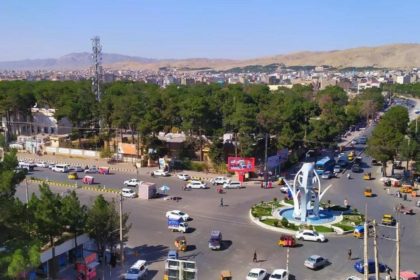RASC News Agency: The Chinese government has voiced grave concern over the escalating border conflict between Taliban forces and the Pakistani military, warning that the ongoing hostilities could endanger Chinese nationals and jeopardize Beijing’s multi-billion-dollar investments in both Afghanistan and Pakistan. The renewed clashes, taking place across volatile border zones, are rapidly evolving into a major regional security challenge one that could undermine China’s strategic ambitions under the Belt and Road Initiative.
According to a report published Wednesday morning by the South China Morning Post October 15, China’s Ministry of Foreign Affairs issued an official statement urging both sides to exercise restraint and resolve their disputes through dialogue rather than armed confrontation. The statement read:
“Beijing calls on Islamabad and the Taliban authorities to refrain from any provocative actions and to prioritize the preservation of regional stability and security.”
A spokesperson for the Chinese Foreign Ministry emphasized that Beijing is closely monitoring the security situation along the border and remains in contact with both sides in an effort to prevent the clashes from disrupting Chinese-led development projects, including the flagship China–Pakistan Economic Corridor (CPEC) and other Belt and Road investments extending into Afghanistan.
This marks the first time China has publicly expressed alarm over the Taliban–Pakistan confrontation an acknowledgment of how fragile Beijing’s economic ambitions have become amid growing instability in Afghanistan under Taliban rule. China’s statement also carried a veiled warning: continued violence could severely impact CPEC’s transit routes, many of which traverse volatile frontier regions, and weaken investor confidence in projects already strained by Taliban misgovernance and internal factionalism.
Local sources along the border reported that recent battles between Taliban fighters and Pakistani troops have left at least 200 Taliban militants and 58 Pakistani soldiers dead, with the heaviest clashes occurring near the Torkham and Spin Boldak crossings. Despite Taliban claims of control, gunfire reportedly continues intermittently, underscoring how little authority the group truly exercises over its fragmented ranks.
Regional analysts argue that the growing distrust between Islamabad and the Taliban regime once viewed as allies has reached a dangerous point. Without mediation from regional powers such as China, Iran, or Russia, the confrontation could spiral into a broader regional crisis.
Observers note that Beijing now faces a delicate balancing act: it must protect its commercial interests and workers while avoiding entanglement in a violent dispute between two unstable neighbors. China has long viewed Afghanistan as a potential economic corridor linking South and Central Asia, but the Taliban’s failure to establish credible governance, curb extremism, or ensure security along trade routes has turned that vision into a liability.
Analysts believe that China’s cautious tone reflects growing frustration with the Taliban, whose inability to maintain order or act as a reliable partner has made foreign engagement increasingly risky. Despite Beijing’s early outreach to the group, the Taliban’s internal divisions, cross-border militancy, and antagonism toward Pakistan have now begun to threaten not only Afghanistan’s stability but also China’s long-term regional strategy.






